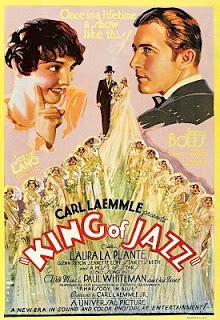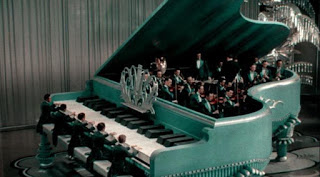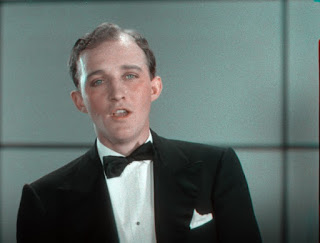King of Jazz

Director:
John Murray Anderson
Year: 1930
Rating: 7.5
The restored version
of this film from Criterion is so pristine and sharp with colors so gorgeous
that it will take your breath away. This for a 1930 film shot in two-color
Technicolor. There is no story here - just a musical revue led by Paul Whiteman
and his Orchestra with many songs and a few comedy skits. Produced by Universal,
they initially tried to write up a real script but after many bad ideas they
just said screw it - just do music. The songs are very hit and miss for a
modern audience - some so old fashioned I expected my grandfather to climb
out of his grave and sing along - but some are knockouts - big productions
that hint at what is to come with Busby Berkeley just ahead.





